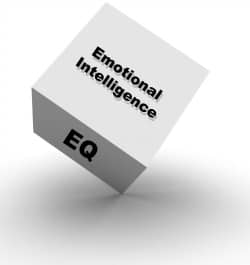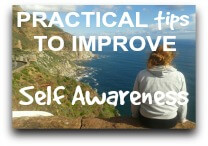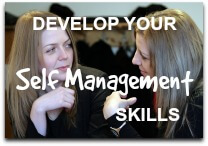- Home
- Emotional Intelligence
Master Emotional Intelligence: Boost Your Career and Enjoy Better Relationships Every Day
Emotional intelligence consists of a range of fundamental skills that allow you to confidently respond to people and changing situations.
By Mark Connelly Updated: 18 November 2023

Managing the way you respond to events and your ability to communicate effectively is essential for leaders of organizational change, and for managing personal change.
Don't think of emotional intelligence as just another theory. The skills are practical and are the basic ingredients of effective leadership and personal resilience to change.
In this article
EI has a particular history and development based on sound research and is much more than a trend of "soft skills" being applied to leadership and individuals.

What does EI have to do with managing change?
Everything!
If you can create awareness of the way you respond to life events, such as change, and manage your response to the event you're well on your way to effectively managing change.
It's not what happens that matters but how you respond to it that really counts.
EI gives you the ability to distinguish between the event that happens, and the way you respond to it. Simply being aware of your response means you can make changes that benefit you.
Being emotionally intelligent is the underlying structure - the scaffolding - that supports effective responses to events, people...and change.

So, what does it mean to be emotionally intelligent?
Popularized by Daniel Goleman in 1995 the skills of emotional intelligence emphasize awareness, control and management of our emotions and the emotions of other people.
These skills are recognized as central to leadership success and to your ability to manage life's curve balls - the challenges of life that often include change.
Being emotionally intelligent includes the following abilities:
- Self Awareness: The ability to recognize and understand your feelings and emotion, and the ability to understand how you respond to situations and other people’s actions.
- Self-Management: The ability to choose how we express ourselves, to control our thoughts, feelings, actions and to motivate ourselves. Self Management is also referred to as self-regulation.
- Social Awareness: The ability to recognize and understand the feelings and emotions of others.This includes skills in empathy.
- Relationship Management: The ability to express your emotions and communicate effectively. This allows you to manage relationships with others and manage how they might respond to you.
Can Emotional Intelligence be learned?
Scientific research in psychology and neuroscience shows that EI skills can be learned. EI plays a vital role in daily life and it can help you manage change, relationships, and achieve success in life.
Evidence from peer-reviewed articles confirms that EI training programs are effective. The science behind it shows that the brain's neural pathways can be rewired.
A variety of research-backed methods and techniques can help enhance your emotional intelligence. Research tells us that focused coaching and training courses that provide accurate feedback are the best ways to improve EI.
Discover more here...Can Emotional Intelligence be learned?

How To Improve Emotional Intelligence
There are lots of practical strategies you can use to improve your EI.
Research shows that improving emotional intelligence is best done over time and with lots of practice. Joining a structured program that guides you and gives you feedback is most effective.
Try these practical steps and read more about how to improve emotional intelligence in your life.

Why do people refer to Emotional Intelligence as "EQ"?
"EQ" refers more specifically to the term "Emotional Quotient", but both EQ and EI are used interchangeably to refer to Emotional Intelligence.
Your Emotional Quotient, or EQ, is a measure of your emotional ability, just as IQ, or Intelligence Quotient, is a measure of your intellectual ability.
Isn't EQ just pop psychology?

EQ entered popular psychology in 1995 when Daniel Goleman published "Emotional Intelligence: Why It Can Matter More Than IQ".
Soon after this Time Magazine published a cover story on the subject as well. These two events brought EQ firmly into the public arena.
Research has produced useful theory and concepts on which the practice of EI is built. These include:
- Multiple intelligences
- Interpersonal communication
- Emotional quotient
- Emotional development
- Social intelligence, and
- Emotional resilience.

Benefits of EI
Time Magazine notes that, in the corporate world, personnel executives hold the opinion that IQ gets you hired, but EQ gets you promoted. The benefits of being emotionally intelligent contribute to personal success in business and all other spheres of life.
The development of leadership in all areas of life, but particularly in business, is an important benefit of EI. The ability to manage personal responses to change and to build resilience to change are vital in ensuring leader and manager effectiveness.
How does EI help to manage change?
Change often involves a shift away from the safety of our comfort zone.
As humans we enjoy routine, but can be thrown when this routine is threatened and we need to change. This is true at work and in our personal lives.
In the workplace and in our personal lives being emotionally intelligent is an essential component to building resilience for mental health and successfully managing change.
Emotionally intelligent leaders and managers are also able to help others manage difficult change.
EI contributes to effective change management:
- by developing emotional maturity
- by increasing social intelligence
- as a tool to avoid or manage relationship problems
- by improving interpersonal communication
- by helping to manage emotions
- as a method of coping with stress
- by influencing leadership styles
- by helping leaders make business decisions about change
- by supporting managers, supervisors and staff in the workplace
- by effectively managing resistance to change.
Next Steps:
Keep in touch by visiting our Facebook Page and clicking 'Like' to join the community.










